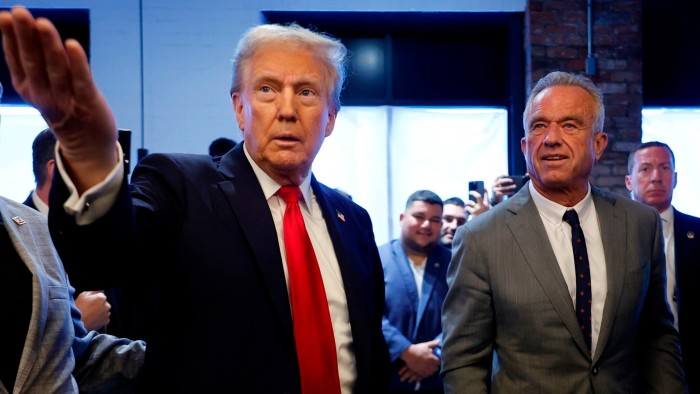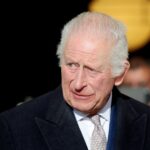Unlock the White House Watch newsletter for free
Your Guide to What the 2024 US Election Means for Washington and the World
Donald Trump’s transition team is pushing to withdraw the US from the World Health Organization on the first day of the new administration, according to experts who warn of the “catastrophic” impact it would have on global health.
Members of Trump’s team have told experts they intend to announce the withdrawal from the World Health Organization at the president-elect’s inauguration on January 20. Withdrawal would remove the WHO’s biggest source of funds, harming its ability to respond to public health crises such as the coronavirus pandemic.
“America is going to leave a huge gap in global health funding and leadership. I don’t see anyone covering the breach,” said Lawrence Gostin, a professor of global health at Georgetown Law, adding that the withdrawal plan “on day one” would be “catastrophic” for global health.
The battle over US relations with the WHO comes after Trump named several allies, including vaccine skeptic Robert F. Kennedy, for top health posts in the next administration. But Gostin said he wasn’t sure Trump would place an immediate withdrawal as high a priority as some on his team.
The US is the WHO’s largest single donor, providing about 16 percent of its funding in 2022-2023.
In 2020, Trump began the process of withdrawing from the WHO as Covid-19 spread, accusing the organization of being controlled by China. But the process was never completed, and his successor Joe Biden resumed relations with the agency on his first day in office in 2021.
Experts have been told that some in Trump’s team want to move much faster this time after starting the process right away.
Ashish Jha, Biden’s former White House co-ordinator on the Covid response and dean of Brown University’s school of public health, said the transition team wanted Trump to withdraw on day one because of the “symbolism” of reversing his move. of Biden on Inauguration Day.
“There are many people who will be part of the inner circle of the administration who do not trust the WHO and want to symbolically show on day one that they are out,” he said.
He added that some in the group wanted to stay with the agency and push to reform it, but another group that believed in severing ties was winning the argument.
Agencies like the WHO are key to global cooperation to develop and distribute vaccines and other treatments in health emergencies, Tza said.
“If you don’t deal with these institutions, you don’t have your ears to the ground when the next outbreak happens,” he warned.
Gostin said there will be “very lean years for the WHO where it will struggle to meet health emergencies and will have to significantly reduce its scientific staff”.
He warned that if the US leaves the WHO, European countries are unlikely to increase funding and China may try to exert more influence. “It would not be a smart move as withdrawal would cede leadership to China,” he said.
The Trump transition team did not immediately comment on the possible withdrawal. A person familiar with the plans told the Financial Times: “The same WHO we left in the first government? It looks like we wouldn’t really care what they have to say.”
The WHO did not comment. Tedros Adhanom Ghebreyesus, the agency’s director general, said this month that it was a “unique organization” that hoped to work with US policymakers.
“For our part, we are ready to cooperate,” he said. “I think US leaders understand that the US cannot be safe if the rest of the world is not safe.”


